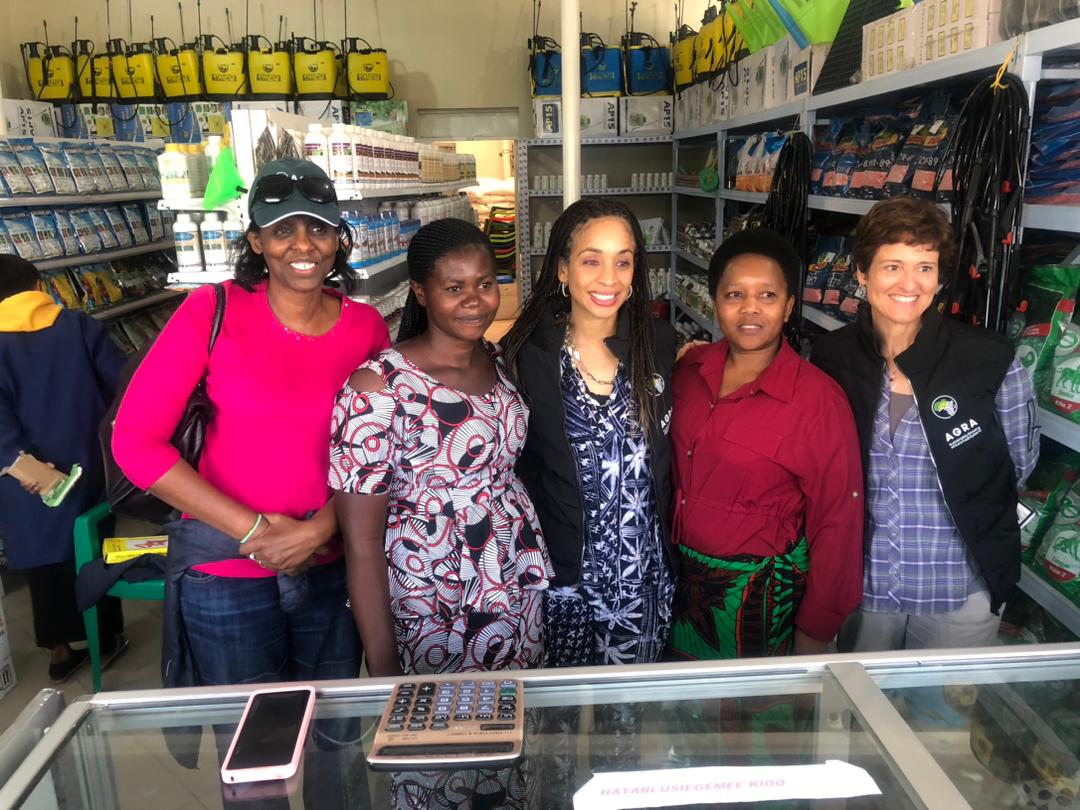Exploring the Transformation of Tanzanian Agriculture Through Digital Innovation: A Critical Dialogue
Kilimokwanza.org Correspondent
On September 3, 2023, a delegation from AGRA visited Tanzania’s Southern Highlands, igniting crucial conversations about the role of digital technology in transforming agriculture and food systems. The visit underscored the urgency of leveraging innovative tools to address challenges across value chains, enhance efficiency, and engage youth. This feature captures the voices of AGRA’s leadership as they shared insights, ideas, and strategies during this landmark event.
Reimagining Agricultural Value Chains
Dr. Agnes Kalibata, President of AGRA, emphasized the need to critically assess the digital landscape and its potential to address systemic inefficiencies in agriculture. Reflecting on AGRA’s decade-long efforts, she said:
“The digital space is fascinating—one that we must understand to determine which aspects are truly private-sector driven, which are complex, and how to define them. Reflecting on 10 years of separate business operations, we realized value chains were not functioning as expected.
‘No, it’s not working,’ we thought. Farmers lacked essential resources, and businesses lacked visibility into farming costs, preventing greater investments.
How do we connect these dots? We’ve invested significantly in bridging these gaps. Meanwhile, engaging with the youth has brought new applications to the agricultural space.
What’s working? What isn’t? Is it scalable? Can innovations unify these elements? These questions highlight our challenges—but they also represent opportunities.”
Digital Tools Revolutionizing Agriculture
Vianney Rweyendela, AGRA Tanzania Country Director, highlighted the impact of digital tools in bridging gaps between farmers and markets.
“Several contractors are developing digital tools—from input trading to output trading. For instance, some cooperatives use a tool linked to a weigh scale. If 100 bags of maize are placed on the scale, the data is transmitted directly to mobile phones, preventing fraud and improving transparency.
Input trading has also become more efficient. Orders placed on digital platforms are instantly relayed to agro-dealers, reducing the need for farmers to travel. This ‘zero kilometer’ approach saves time and resources.”
Integrating Digital Platforms
Prof. Jean Jacques Mbonigaba Muhinda, AGRA Regional Manager for East Africa, stressed the importance of unifying digital platforms for broader impact.
“Multiple digital technologies have been tested, including apps for tractor hiring, demand aggregation, and seed availability. However, integrating these into a one-stop information center remains a key opportunity.”
Empowering Village-Based Advisors
Vanessa Adams, AGRA Vice President, Strategic Partnerships & Chief of Party, discussed the challenges and opportunities of digitizing resources for Village-Based Advisors (VBAs).
“COVID-19 highlighted frustrations in controlling fertilizer and grain prices, underscoring the need for cohesive digital solutions. We’re helping the government integrate fragmented platforms to enhance efficiency.
We’ve also digitized resources for 6,000 VBAs in seven languages. Adoption, however, is a step-by-step process—beginning with basic communication tools, progressing to inventory management, and eventually traceability.
The key is showing farmers tangible benefits like access to insurance or working capital. Tools must not only exist but also be marketed effectively to ensure widespread adoption.”
Balancing Digital Innovation and Climate Action
Thembalihle Hixonia Nyasulu, Chair of AGRA’s Nominations and Governance Committee, highlighted the need to align digital strategies with climate change considerations.
“Are we too reliant on third parties? After years of partnership, progress can stall. At what point do we lead instead of partner? Moreover, how do we integrate climate considerations into digital strategies?
Africa needs practical, detailed climate data tailored to farmers.”
Financial Incentives as a Driver of Digital Adoption
Frank N.J. Braeken, Chair of AGRA’s Finance & Human Resources Committee, reflected on the financial motivations that encourage farmers to adopt digital platforms.
“Digital platforms must offer real financial benefits to farmers. In India, digital marketplaces thrive because they deliver tangible value. Tools must not only exist but also be marketed effectively to ensure widespread adoption.
A tool doesn’t sell itself. When a platform offers farmers access to insurance or working capital, it becomes truly valuable.”
Investing in Human Capital
Prof. Joachim von Braun, Chair of AGRA’s Programs Committee, called for greater investment in human capital to unlock the full potential of digital tools.
“Strengthening human capital through digital education is crucial. Village-based agents trained in maintenance and technology can revolutionize agricultural knowledge. Investment in human capital is as vital as advancing tools.”
The critical dialogue in Tanzania’s Southern Highlands offered a glimpse into the transformative potential of digital innovation in agriculture. AGRA’s leadership illuminated a clear path forward from improving value chains and integrating platforms to aligning with climate strategies and empowering human capital.
As Tanzania and the wider African continent grapple with the challenges of feeding growing populations amidst climate change, the insights shared during this visit reaffirm the role of digital innovation in shaping a more resilient and prosperous agricultural future.
